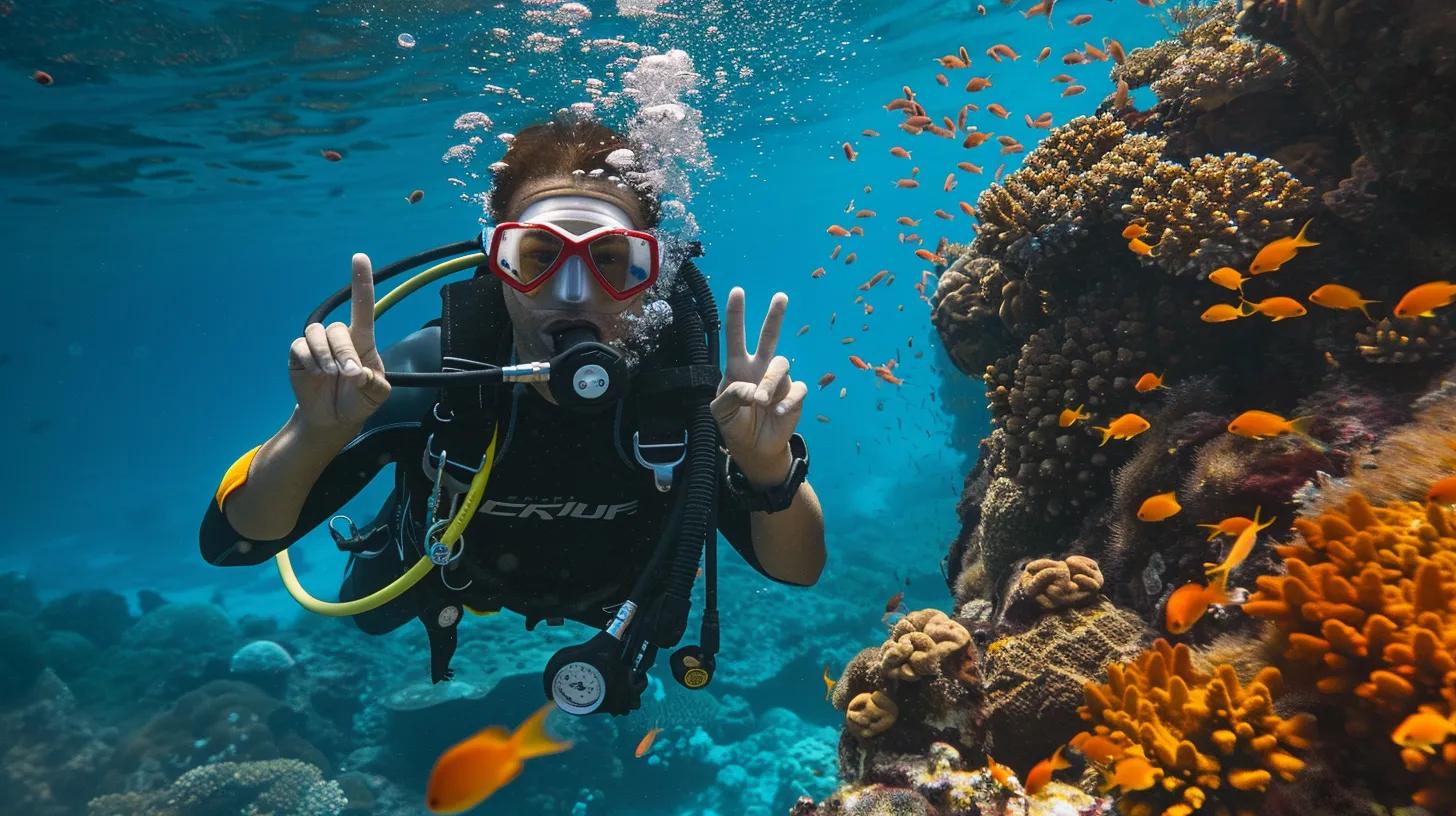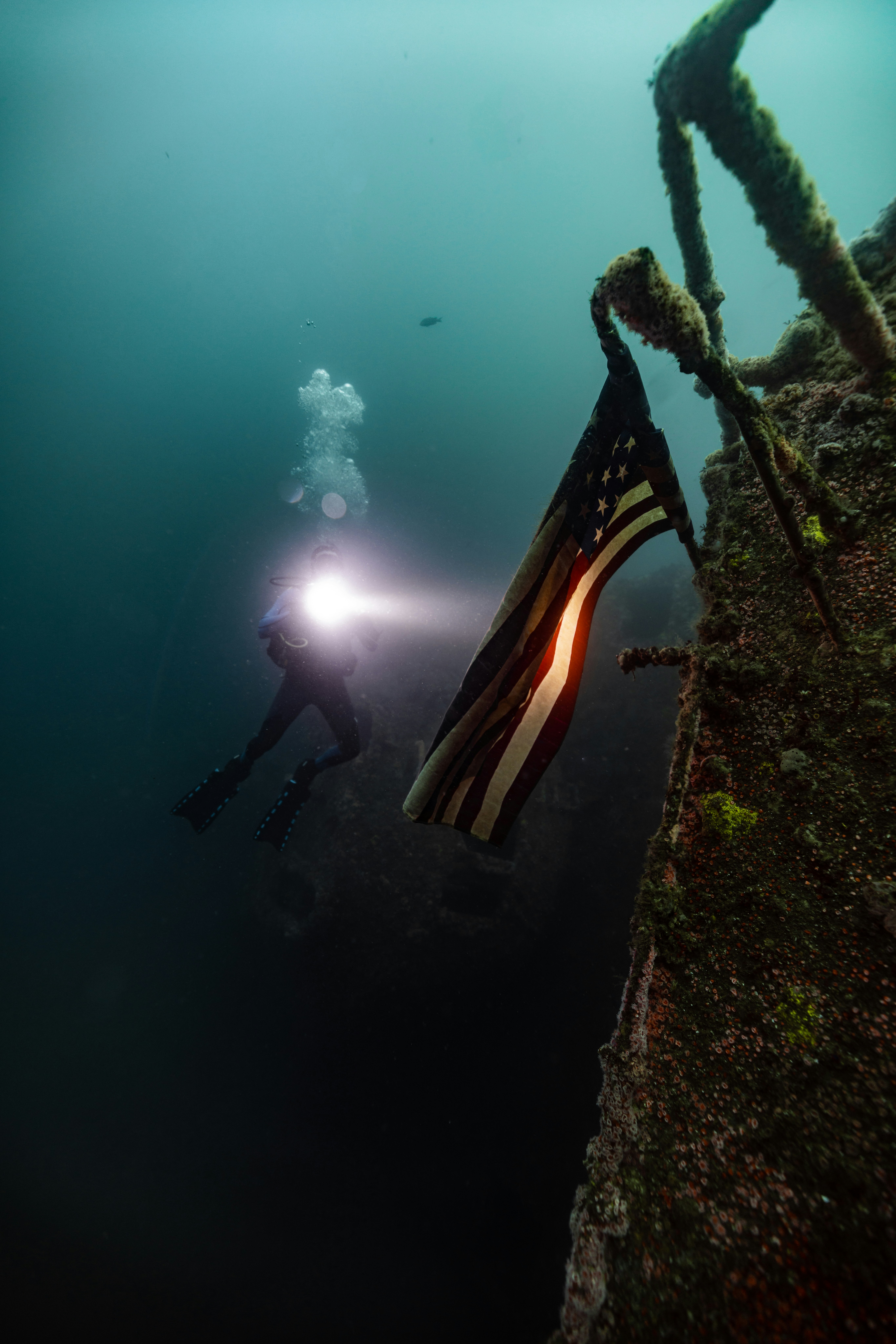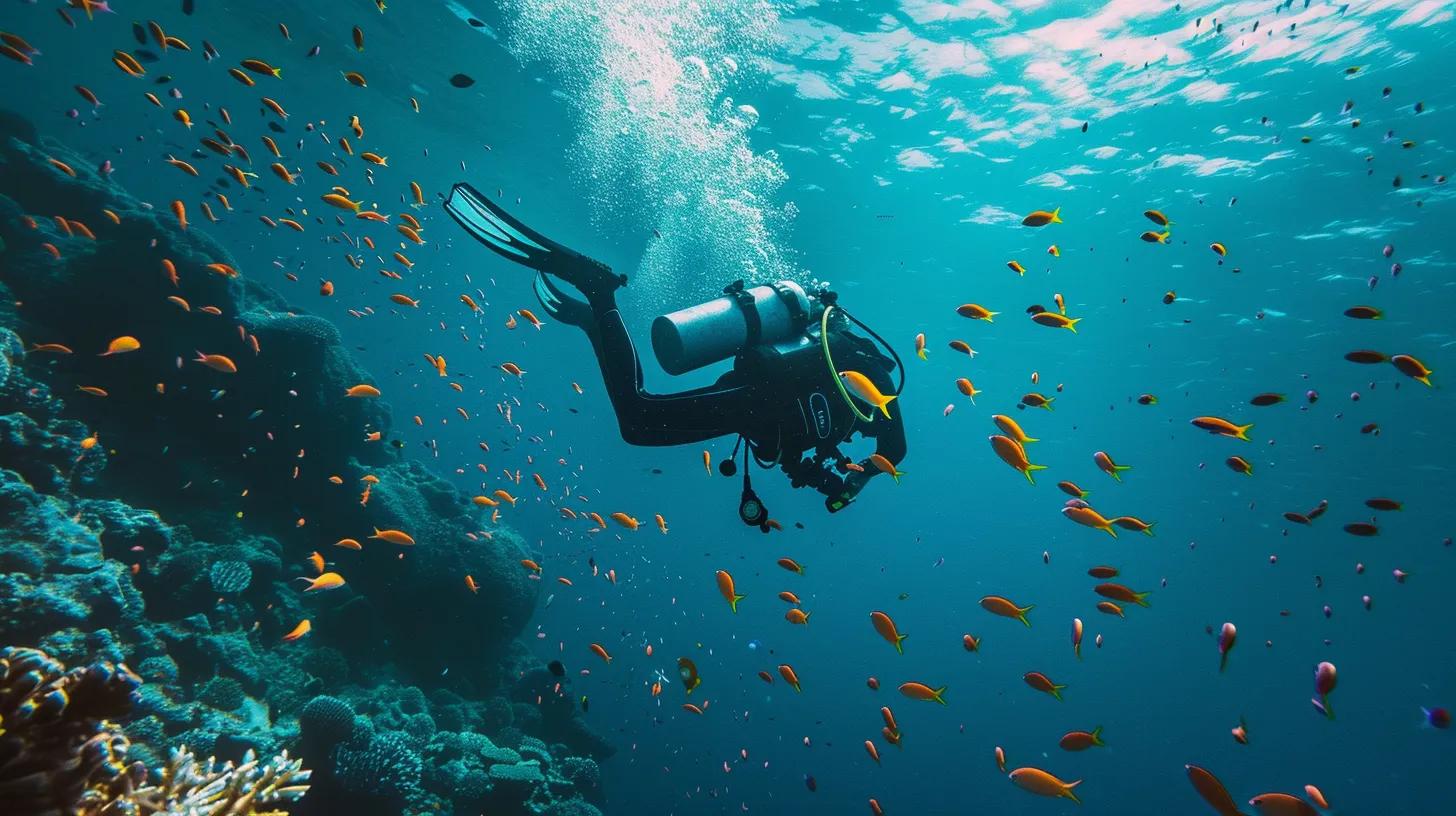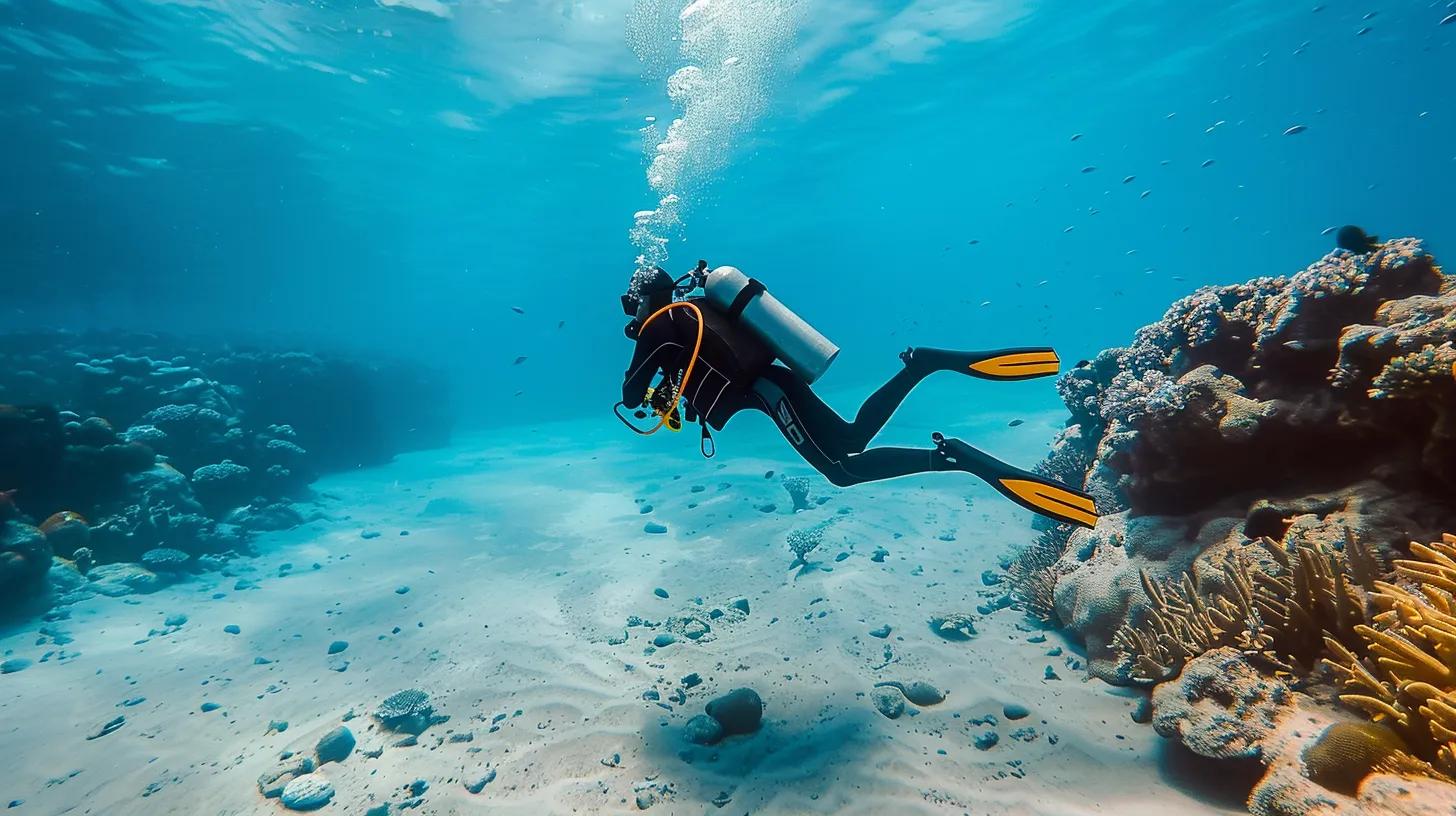

What Are the Different Levels of Scuba Diving Certification Near Me
Open water certification courses introduce you to basic dive theory, equipment use, underwater navigation, and buoyancy control. Advanced Open Water programs build on those fundamentals by adding deeper dives, underwater photography, and wreck diving skills. Rescue Diver and Divemaster certifications emphasize diver safety, first aid, leadership, and the ability to guide others—each level unlocking new diving experiences and career opportunities.
Research Citation
Scuba Diving Certification Levels Scuba diving certifications offer various levels, from introductory Open Water Diver to advanced certifications like Rescue Diver and Divemaster, each opening new diving experiences and career opportunities. Open Water Diver courses cover fundamental skills, while Advanced Open Water programs build on these with deeper dives and specialty skills. Rescue Diver and Divemaster certifications focus on safety and leadership.
PADI, Open Water Diver Manual (2024)
What Is Included in the Open Water Diver Certification?
How Does Advanced Open Water Diver Certification Build on Basics?
Advanced Open Water Diver training adds five adventure dives that deepen your skills: deep diving (up to 100 ft), underwater navigation with compass and natural landmarks, wreck diving fundamentals, peak performance buoyancy for fine control, and nitrox diving techniques. By squeezing more air time from enriched air nitrox, you enjoy longer bottom times and reduced nitrogen loading, making dives safer and more comfortable.

What Are the Benefits of Rescue Diver and Divemaster Certifications?
Rescue Diver emphasizes first aid, diver self-rescue, panicked diver management, and underwater incident prevention. You’ll practice simulated emergencies and learn to use oxygen kits effectively. Divemaster training deepens leadership skills, dive site evaluation, and diver briefings, enabling you to supervise certified divers and assist instructors during courses. These advanced credentials grow your confidence and open pathways to professional diving roles.
How Do I Get Scuba Diving Certified Near Me? Step-by-Step Process Explained
Signing up for a local scuba diving course begins with researching dive centers, verifying instructor credentials, and confirming small class sizes. After choosing Open Water or Advanced Open Water, you’ll complete online or classroom theory, pool sessions, and a series of open water dives under instructor supervision.
What Are the Typical Requirements for Scuba Diving Certification?
Most courses require participants to be at least 10 years old (age 12+ for junior Open Water), able to swim 200 m or tread water for 10 minutes, and complete a medical questionnaire. You’ll need basic first aid training for rescue-level courses. Proper gear—mask, snorkel, fins, BCD, regulator, and gauges—is either provided by the dive center or available for rental.
How Long Does It Take to Complete a Scuba Diving Course Nearby?
Open Water Diver certification typically takes 3–4 days: one day of theory and pool skills, followed by two days of four open water dives. Advanced programs can be completed in 2–3 days with one theory session and five specialty dives. Rescue Diver often spans 2–3 days, including first aid review and practical rescue scenarios.

What Should I Expect During Scuba Diving Lessons Near Me?
Expect a structured progression: pool sessions introduce buoyancy, regulator breathing, and mask clearing; open water dives replicate those skills in real environments. Instructors will review dive site procedures, conduct equipment checks on the dive boat, and guide you through underwater tasks. Frequent debriefs ensure you understand safety protocols before progressing to deeper dives or specialty skills.
Where Can I Find Affordable and Quality Scuba Diving Schools Near Me?
Choosing between PADI and SSI dive centers requires evaluating certification recognition, course fees, equipment standards, and instructor experience. Local dive shops like Ocean Explorers Dive Center often offer seasonal discounts, gear packages, and community dive events that fuel ongoing learning.
How to Compare PADI vs. SSI Certification Courses Locally?
Certification Agency Global Recognition Course Structure Equipment Standards Pricing Flexibility PADI Widely recognized Modular eLearning + dives Shop-tested gear list Standardized rates SSI Internationally accepted Integrated digital manuals Instructor-approved gear Customizable bundles
Research Citation
PADI vs. SSI Certification Comparison Both PADI and SSI are recognized scuba diving certification agencies, offering equivalent training and safety standards. PADI is widely recognized with standardized rates, while SSI offers customizable bundles. Both agencies provide comprehensive training, ensuring divers receive a quality education.
SSI, SSI Open Water Diver Manual (2024)
This comparison shows that both agencies deliver equivalent training and safety. SSI often includes rental gear in pricing bundles, while PADI courses may have fixed fees but broader resort partnerships.
What Are the Unique Benefits of Local Dive Schools Like Ocean Explorers?
Local dive centers with small class sizes deliver personalized coaching—one instructor for every four students—ensuring safe skill mastery. An on-site retail store stocked with wetsuits, dry suits, BCDs, regulators, and dive boats ready for daily trips offers convenience and fosters community among divers through group excursions and dive club events.
How Do Small Class Sizes and Experienced Instructors Improve Training?
Small groups allow instructors to monitor air consumption, buoyancy, and navigation skills closely. Experienced divemasters and professional instructors can adapt lessons to individual learning speeds, reducing anxiety and building competence quickly. This personalized approach enhances comfort underwater and promotes trust in safety protocols before advancing to wreck diving or nitrox specialty dives.
What Are the Best Local Dive Sites for Certification Near Me?
Selecting the right certification dive site depends on water conditions, visibility, depth profiles, and local regulations. Beginner-friendly sites feature calm seas, shallow reefs, and minimal currents, while advanced students benefit from underwater wrecks and drop-offs.
Which Dive Sites Are Suitable for Beginners and Certification Dives?
Popular entry-level sites offer sandy bottoms, reef structures within 40 ft, and marine life such as tropical fish, sea turtles, and octopus. Sites like “Coral Cove” or “Shallow Reef Point” provide easy shore entries, making them ideal for your first four open water dives.
When Is the Best Time to Dive at Local Certification Sites?
Seasonal windows with optimal visibility (50–100 ft) and moderate water temperatures (75–85 °F) usually occur late spring through early autumn. Avoid high-wind months when surface chop and currents increase, affecting dive boat access and safety.
What Local Regulations Should I Know Before Diving?
Regulations often mandate diver certification cards on board, no-take marine protected zones, and maximum group sizes per site. Some areas require nitrox certification to breathe enriched air beyond certain depths. Always perform a dive plan briefing with your instructor and adhere to local wildlife protection rules.
What Scuba Diving Equipment Do I Need for Certification Near Me?
Essential scuba gear for certification includes a well-fitting mask, snorkel, fins, BCD for buoyancy control, single-hose regulator, pressure gauge, wetsuit or dry suit, and weights. Advanced courses may demand specialized items like dive computers, nitrox analyzers, and underwater cameras.
Research Citation
Essential Scuba Diving Equipment Essential scuba diving equipment includes a mask, fins, BCD, regulator, and wetsuit. The right gear is crucial for safety and comfort, with options for rental or purchase. Choosing the right equipment ensures a safe and enjoyable diving experience.
DAN, Scuba Diving Safety Guide (2023)
What Are the Essential Gear Items for Beginners?
- A low-volume mask for clear vision and easy clearing
- Open-heel fins with adjustable straps for comfort and propulsion
- Balanced BCD with integrated weight pockets and multiple attachment points
Choosing the right wetsuit thickness (3 mm–5 mm) ensures thermal comfort in local water temperatures.
Can I Rent Scuba Diving Equipment Near Me?
Most dive centers rent full kits—including BCD, regulator set, wetsuit, and dive computer—on a daily or course package basis. Renting allows you to try different brands before investing in your own gear and reduces travel baggage.
How to Choose the Best Masks, BCDs, and Regulators for Certification?
When selecting gear, prioritize adjustable mask skirts with silicone seals, BCDs with stable lift capacity and easy-to-access dump valves, and regulators with vacuum-tested first stages. Brands that offer in-shop servicing and warranty support deliver long-term reliability as you progress to advanced open water diver and nitrox specialties.
What Are the Typical Costs and Discounts for Scuba Diving Certification Near Me?
Certification costs vary by agency, region, and included extras. Open Water Diver courses generally range from $350 to $550 locally, with Advanced Open Water programs at $300–$450. Rescue Diver certifications can cost $400–$600, depending on first aid requirements.
How Much Does Open Water Diver Certification Usually Cost Locally?
Course Level Duration Typical Price Range Included Services Open Water Diver 3–4 days $350–$550 eLearning, pool sessions, 4 dives Advanced Open Water Diver 2–3 days $300–$450 5 specialty dives, nitrox briefing Rescue Diver 2–3 days $400–$600 First aid module, rescue scenarios
Local centers often bundle gear rental, manuals, and boat fees without hidden charges.
Are There Affordable Packages or Seasonal Discounts Available?
Many dive centers run spring and early fall promotions that include free nitrox certification or discounted equipment rental. Group bookings—friends or family—can unlock up to 15% off total course fees. Student discounts and military rates further reduce costs.
What Is Included in the Certification Course Fees?
Course fees typically cover digital manuals, classroom instruction, pool training, open water boat fees, instructor supervision, and certification processing. Optional extras—photography workshops, underwater diving expeditions, and gear packages—may incur additional charges but enhance learning and fun.
What Are the Most Common Questions About Scuba Diving Certification Near Me?
Prospective divers often ask how to prepare physically, what safety measures are in place, and how to stay engaged with local diving communities after certification. Knowing these answers helps streamline your certification journey and fosters ongoing growth.
How Do I Prepare Physically and Mentally for Certification?
Regular cardiovascular exercise, swimming practice, and core strengthening boost your stamina and comfort underwater. Mental preparation—reviewing dive theory, visualizing skill drills, and attending orientation sessions—reduces anxiety and enhances confidence during pool and open water dives.
What Safety Measures Are Taken During Certification Courses?
Dive centers follow strict protocols: pre-dive medical screenings, daily equipment maintenance logs, comprehensive emergency action plans, and fully stocked first aid kits on dive boats. Instructors carry oxygen units and communication devices to coordinate surface support, ensuring diver safety throughout each dive.
How Can I Join Local Diving Communities After Certification?
Joining dive clubs, social media groups, and community events hosted by local dive centers fosters connections, shares wreck diving trips, and arranges group charters. Many centers offer continuing education wraps—dry suit, nitrox, underwater navigation—that build skills and camaraderie among certified divers.



